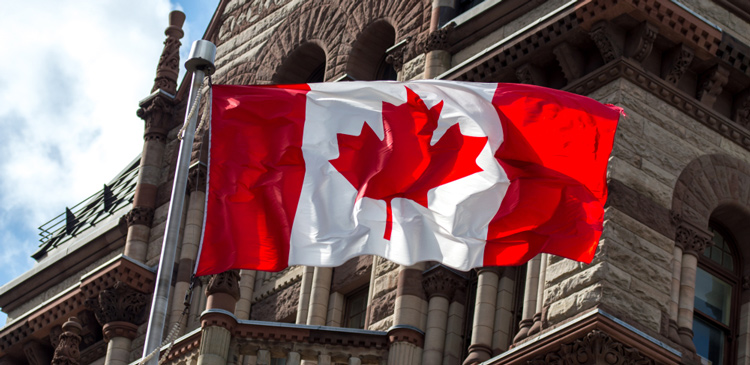Canadian Employment Law for American Employers (Complete Guide)
Your firm is doing great and you’re thinking of expanding your business to Canada. Maybe you’re financially ready, but do you have the necessary knowledge needed to succeed in the Canadian market? Well, if your answer is no, then you should keep reading…
A COMPLETE GUIDE ABOUT CANADIAN EMPLOYMENT LAW FOR AMERICAN EMPLOYERS
 Nunzio Presta
Nunzio Presta
Senior Sales and Marketing Executive
GETTING TO KNOW CANADIAN EMPLOYMENT LAWS
Canadian provinces have their own jurisdictions over employment laws that govern almost all of the employees and employers in the area. Some federally regulated industries such as banking and inter-provincial transportation are exempted and are ruled by the federal government.
All the provinces are common law jurisdictions, except for Quebec, which still uses a European-style civil law system for provincially regulated matters, unless it’s a federal matter. Under common law, courts of each province cite court decisions from other provinces before they pass a new law so they can have fair and consistent laws across all the provinces.

Even if they do their ruling this way, laws of each province still differ in detail compared to other provinces. Also, if a law has not yet passed, employers must consider court rulings (“precedent”) when making employment decisions. It’s best to know the employment law of the province where your business will be so as to make sure you’ll be abiding by the right law.
When employing Canadians, there are some policies that you should know about, as it has some differences with the policies under American employment law.
Here are some of the topics that you should check out the policy of for better compliance.

HIRING EMPLOYEES
Unlike in America, Canada doesn’t have “at-will” employment so every employment is based on contracts. An employment agreement is best to be drafted and signed by both the employer and the employee at the start of their employment as proof that both parties know their rights and responsibilities.

VACATION
Employees are entitled to at least 2 weeks paid time off as vacation pay after 12 months of work. It is equivalent to 4% of their annual gross wages which was stipulated in the employment law. This goes for anyone whether they are part time, a student employee, or a full-time employee.

HOLIDAYS
On statutory holidays of the province, employees are generally given time off, and could be on the same day of the holiday or on a different agreed day and it will not be deducted from their salary. But if in agreement, that employee should work, they should get the whole 8 hours paid plus a premium of 1.5 days or 12 hours paid for that day. That’s a whopping 20 hours’ worth for 1 work day during these holidays.

HEALTH CARE
Canada is known for providing one of the best universal healthcare systems in the world, so basic healthcare insurance doesn’t need to be provided by employers. However, most choose to still offer to cover supplemental insurance as an employee benefit, which covers services such as vision, prescription and dental care not covered by the government.

OVERTIME PAY
Employees are entitled to overtime pay based on the tasks they perform and not based on employment type or hourly pay. Though, employees in managerial positions and the like are usually exempted to this pay.

CLASSIFICATION OF EMPLOYEES
You can be classified as a full-time, casual or student employee based on the hours you render on your job. However, under the Employment Standards legislation, every class of employee has the same entitlements. No class has better rights than the other.

TERMINATION
Termination in Canada is well-regulated under law and could also be expensive. Once an employer decides to terminate an employee, a termination notice should be given ahead of time and the employee will work until the end date on the notice. In some cases, employers can also immediately terminate their employee, but they will need to provide a lump sum payment in lieu of working notice.
GOVERNMENT TAXES AND EMPLOYEE PAYROLL
Tax is also an important matter to discuss whenever you are starting a business in any place in the world. Knowing what taxes the business should pay and how it’s processed are details you need to be familiar with as soon as you plan your business.
Taxes that you need to pay differ depending on your residency status in Canada. But let’s say for this situation that your business is an American company and you are a non-resident as of the time you enter the market. Just like a resident, you will pay income tax but it would only be for your Canadian source income. This includes taxes of income from your business and Canadian properties. You are also subject to withholding tax on passive income from Canadian sources.
Fortunately, if you are a resident of a country that Canada has a tax treaty with, you could have exemptions or reduced rates of tax under those treaties.

PAYROLL TAXES AND RECORDS
Every business is legally bound to remit payroll taxes to the federal Canada Revenue Agency or CRA, except if your business is in Quebec. CRA is the equivalent of the Internal Revenue Service or IRS of the United States of America.
The remittances include contributions to the Canada Pension Plan and Employment Insurance, which are the equivalent of Social Security and Federal-State Unemployment Insurance of the United States. The cost of contribution funds are both shouldered by the employer and employee.
Payroll records are also important in Canada as you need to retain these records for a period of six years. Your records should accurately account for every employees’ wages, taxes, benefits, overtime, accrued vacation and other vital details.
ESSENTIAL DOCUMENTS TO KEEP
Keeping significant documents from the start until the last day of your employee is a best practice for Canadian HR. These documents could protect you and the business in case some dispute arises.
Apart from the payroll records that should be kept for six years, here are some other documents that should be securely filed by every employer.

TERMS AND AGREEMENT OF EMPLOYMENT
As discussed earlier, this document should be drafted at the very beginning of employment. This is an employee’s contract and should include items such as benefits and responsibilities. Anything that the employer and the employee come to agree with within the employment period should be added into this document as well.
PERFORMANCE REVIEWS
It is also important to keep the records of the employees’ performance reviews as this would aid in the salary appraisal of the said employee. These could also be of help if an employer is considering a promotion for a certain employee.
RECORD OF DISCIPLINARY ACTIONS
Just like how you record an employee’s good performance, misconducts and disciplinary actions should be documented as well. This could be used as a reference for reviewing work performance. Disciplinary action record is also an important reference when you terminate an employee.
NOTICE OF TERMINATION/ TERMINATION LETTER
We mentioned earlier that termination is a big deal in Canadian Employment Law. You would need to give notice to your employee of their termination weeks before their last day or payment in-lieu of working notice. This notice should come with a copy of their termination letter.
RECORD OF EMPLOYMENT
Apart from the termination letter, a Record of Employment or ROE should be provided to the employee when they are terminated. This letter should be provided within 5 days of the termination. A federal agency called Service Canada regulates the ROE which provides payroll information and reason for termination. They use the ROE and other records to qualify an individual for employment insurance.
 It can be hard to keep track of all these essential documents for each employees. If you are not sure if you can keep up, it would be best to hire an expert HR team to keep your business in compliance.
It can be hard to keep track of all these essential documents for each employees. If you are not sure if you can keep up, it would be best to hire an expert HR team to keep your business in compliance.
You can also hire a consultant that knows all about Canadian HR. They can help your HR team in adapting to the Canadian Employment Laws. Another choice is to hire an outsourced employer of record, like HR Options, who will administer both HR and payroll for you.
ABOUT HR OPTIONS
HR Options is one of the experts you can trust when it comes to Canadian HR. They help international companies entering Canada in navigating Canadian Employment laws and best practices.
They offer Canadian outsourced employment services that deliver full HR service. Apart from that, they also have HR consulting services that provide expert advice and implementation on Canadian HR on a fractional or project basis.
For more details, you may contact HR Options by calling (800) 777-8944/ (866) 859-4157 or send an email at service@hroptions.com and we’ll be happy to assist you with your Canadian HR concerns.

CONCLUSION
To quickly summarize what you have read thus far, hiring Canadians for your American company, it’s best to be well-versed in employment law for you to be compliant every step of the way. There are some laws and policies that you should keep in mind like how vacation and overtime pay are implemented.
Take note that there are some specific differences between laws of each Canadian province. There are also some industries that fall under the federal government, so they follow different rules.
Also, get as much information as you can about the different taxes you need to pay and the records you need to submit. Keep records of all important documents of your employees like employment agreements and such for your compliance with the law.
Make sure that you get a team of experts when it comes to Canadian HR, so your company will be guided accordingly to how the Canadian Employment Law really works.
However you want to run your business, make sure it is in accordance with the law. If you do this, you can guarantee that there will be no difficulties you won’t be able to solve as you plan to enter the Canadian market and as you try to hire the people you need for your business.
GET EVERY NEW COVID-19 BEST PRACTICE RESOURCE
Receive exclusive access to our library of COVID-19 resources.
RELATED ARTICLES
THE SPECIFICS TO CANADA’S EMPLOYMENT STANDARDS ACT
NEW FRONTIER: ENTERING THE CANADIAN MARKET
EMPLOYEE HIRING PROCESS: THE CANADIAN WAY
OTHER ARTICLES
Why Use Third Party Employment Services
The Duties And Goals Of An HR Department
WORKPLACE TRENDS #7: MILLENNIALS TAKE THE LEAD
LET'S CHAT ABOUT YOUR HR OPTIONS
Chat below or call (800) 777-8944 for an immediate response.